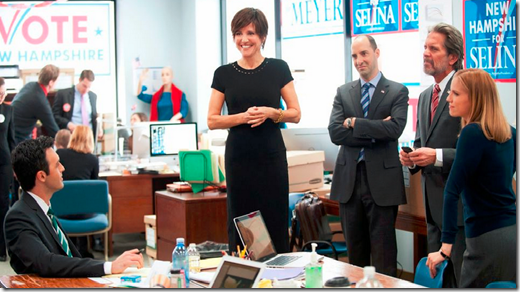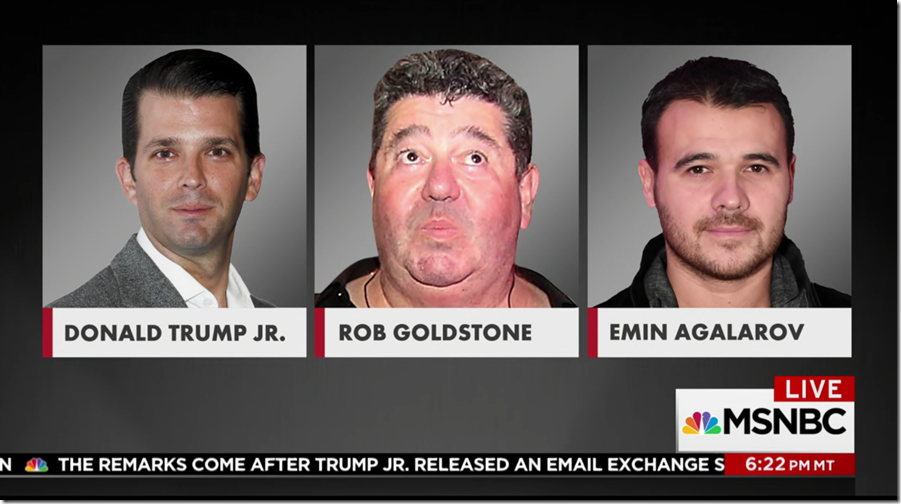As Seen On TV: What Would You Do In This Situation?
The season finale of HBO’s Veep, which aired earlier this month, featured a hilarious moment that made me wonder what I would do in the same situation.
If you’re not familiar with the program, Julia Louis-Dreyfus plays Selina Meyer, the nation’s first female vice president. The show revolves around Ms. Meyer and her rather colorful staff.
The moment occurred just after the vice president concludes an in-person interview with an obnoxious Boston newspaper reporter. After the reporter walks away, Meyer and her staff begin discussing a couple of their small-money campaign donors and insulting their thriftiness. They even give their low-money donors a derogatory name—GUMMIs—an acronym for “Give us more money, idiots.”
Just as they finish their conversation, they realize that the Boston reporter accidentally left his phone behind, on which he had been recording his interview with the vice president (it was still recording). The reporter, who realizes his mistake, is on his way back to the office to collect his phone.
The staff quickly realizes how much trouble the campaign will be in if the recording of their conversation gets out—small-money donors will pull their contributions, and the campaign will be seen as elitist. They weigh their options: We should destroy the phone with a lamp! We should say it accidentally fell into the toilet!
The reporter enters the office and collects his phone before they can execute their plan (and, spoiler alert, the “GUMMIs” conversation does cause unflattering headlines).
That made me wonder: What would I do in that situation? The choices boil down to these three:
1. Do nothing and hope the reporter doesn’t use that material
This is the option Meyer’s staff took—and it didn’t pay off.
2. Destroy the evidence
This would kill the negative story about the GUMMIs—but it might lead to even more damaging headlines about destroying a reporter’s phone and speculation about what Ms. Meyer said on the destroyed tape. (The phone was password protected, so simply deleting the file wasn’t an option.)
3. Negotiate with the reporter
This is the strategy I would have chosen. When the reporter came back for his phone, I would have asked him to consider all of the material included on the tape after he left the room “off the record.” The reporter would have had no obligation to honor my request—such requests are typically made prior to the interview and agreed upon in advance by both parties—but in this case, the material was gathered without the consent of the taped party (which might even constitute an illegal recording in some states). His leaving the tape recorder behind might have even been an intentional trick, although the show didn’t address that question.
If the conversation with the reporter doesn’t go well, there could be an either implicit or explicit threat regarding future access—publish that material, and you’ll never speak with the vice president again. (That’s the “stick” approach; the “carrot” approach of offering increased access could also work.)
[poll id=”41″]
If you have any additional thoughts, please leave them in the comments section below.




Veep is an entertaining show that often has realistic scenarios and this was one of them. As someone who has worked with senior politicians, I think it might be more instructive to look at how the situation might have been prevented. First of all, I always insist the interview take place in a boardroom or other neutral location. There can be any number of documents, photos or artifacts that a reporter could take out of context. Secondly, I caution that the interview is not over until we see the reporter drive away. Or we drive away. Another variation on this theme is the wireless microphone which is so easy to forget about. I have had to literally put my hand over the mic and stop a client in mid-sentence because he thought we were in a private space.
All that said, when the phone was discovered in the Veep scene, someone should have said something like, “Stop kidding around folks. We’ve been under a lot of pressure but you know all of our donors are very important to this campaign.” I would have told the Boston reporter there was some joking around on the phone and then started writing a public statement. I would not have tried to negotiate or claim the joking was “off the record”. In my experience that only makes reporters more keen to use the material.
Hi Ken,
Thank you very much for your insight. I love your suggested approach of saying something like “Stop kidding around folks…our donors are very important to this campaign.” That would take some quick thinking — but it would reduce, at least somewhat, the impact of some of the inflammatory quotes on the tape.
I wouldn’t take negotiating off the table, though. You’re right that negotiating could make some reporters more keen to use the material — but certain situations might justify taking that risk. In my opinion, the Veep situation is one of them.
As always, I appreciate you leaving your experience on the blog. Thank you.
Brad
Pray to god I have a good relationship with the reporter and can get somewhere negotiating, or at the very least frame the eventual story a little bit. You’d have to be working for someone pretty authoritative to get away with the stick.
Along the lines of what Ken said, make it the person’s habit that giving back the mic or watching the reporter turn the tape off is the last part of the interview. That way something will go off in their head – and yours – if that final step doesn’t happen.
Kevin —
You and Ken have offered good advice to spokespersons to remain aware of the reporter hitting the “off button.” I agree with Ken’s rule about driving away — I’ve occasionally called it the “Get In Your Car Rule” — but in this case, even that wouldn’t have been enough (the reporter may have driven away, but his phone was still recording away).
I do wonder if this tactic — especially if it was done deliberately — could constitute an illegal wiretap. If any lawyers are out there reading, I’d love your thoughts.
Thanks for reading,
Brad
Assuming that the same elves who steal your socks couldn’t make an appearance for the phone, I’d try to talk to the reporter. You would only pique their interest by being frantic (“We did a very bad thing. Please. Please. For the love of God.. “).
I’d be straight up. “Listen, your phone recorded a conversation we thought, rightfully so, we were having in private. Do I have your word that you won’t use anything after the point the interview officially ended?”
Here’s a question: Do you say that while the phone is still recording?
Nikki —
That’s an interesting question. Either way, the journalist can report that you asked them not to use the information. But if you say it on tape, they can upload the tape to their website or use it on radio and television — and somehow, hearing the request in your own words may make matters even worse.
In this specific case, I like your approach, although I might make it sound a touch less presumptuous. I’d phrase it more as a professional request than an expectation.
Thanks, as always, for commenting!
Brad